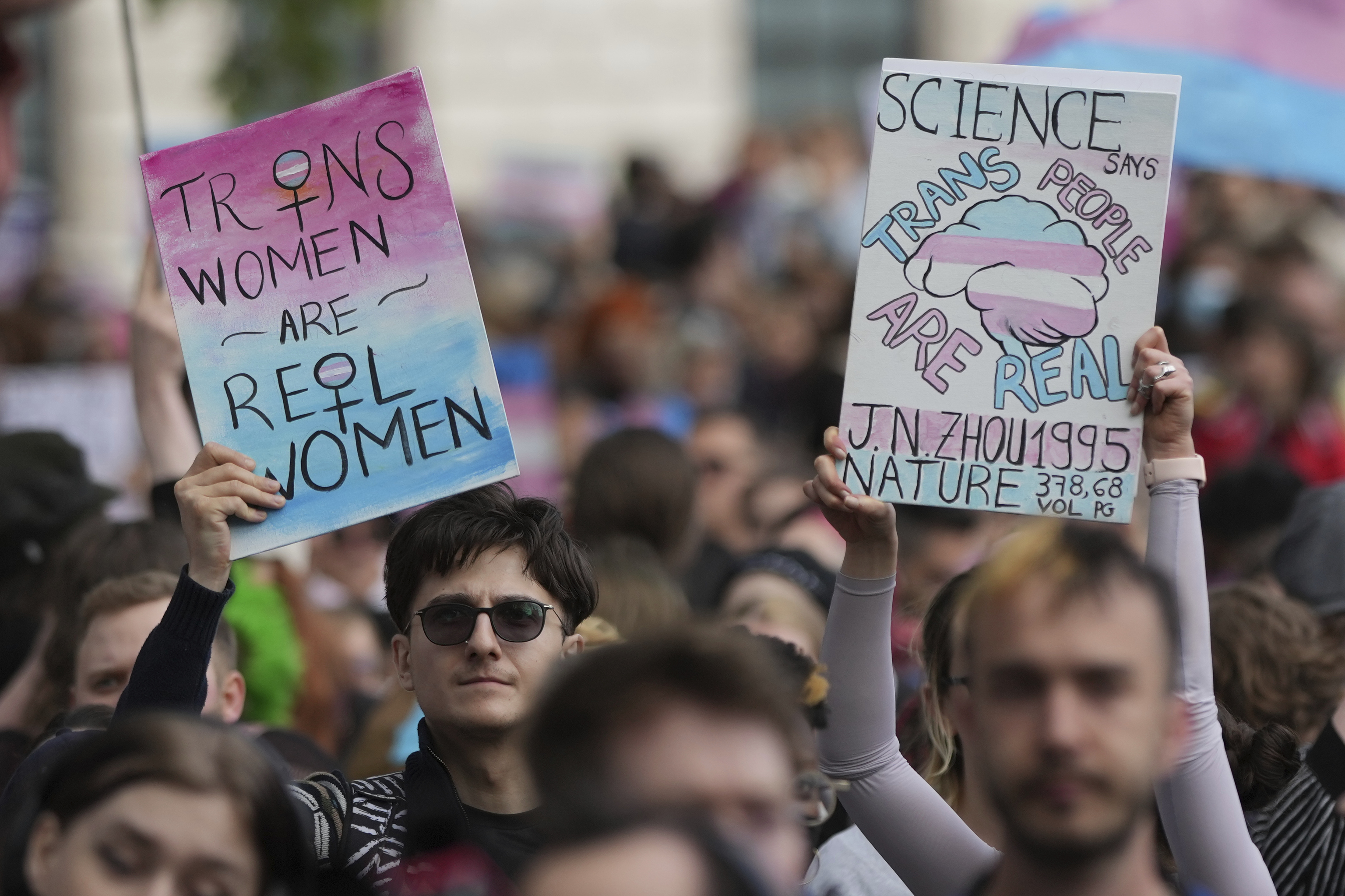Over 20,000 people, according to organizers, participated today in an "emergency demonstration" in central London to protest the UK Supreme Court's decision to legally define a woman's biological sex - meaning the sex assigned at birth - as their legal sex. The Supreme Court ruling issued on Wednesday means that 'trans' individuals will continue to have, legally, the sex they had before transitioning.
According to the Court, the terms "sex" and "woman" are immutable, even if the individual holds a Gender Recognition Certificate (GRC), an official document that acknowledges a person's gender change and new sexual identity.
The march, held in front of Parliament, is part of a wave of protests against the ruling, causing a new division among groups involved in the so-called 'culture wars', now between feminists who could be defined as 'traditional', advocating for gender immutability, and those who argue that undergoing a sex change also requires a legal gender change. Pro-trans groups have called for at least 38 protest rallies across Great Britain in late April and May, according to the organization 'What the Trans!' (a play on words with the expression "What the fuck!").
The Supreme Court ruling follows a campaign by the organization For Women Scotland (FWS, which also carries certain connotations as it stands for "for the well-being of women"), supported by writer K.J. Rowling, famous for creating the 'Harry Potter' book series. FWS, established seven years ago, initiated legal action against the Gender Recognition Law reform passed in Scotland in 2022, which introduced the principle of 'self-identification' for determining a person's gender. Under this law, an individual's self-identification was legally binding.
The implications will be significant for transgender women. For instance, male police officers may temporarily search 'trans' women who are arrested while British authorities decide how to implement the court ruling. It could also lead to their exclusion from women-only spaces such as shelters, changing rooms, sports facilities, and hospitals where gender segregation exists. The decision is based on the Equality Act of 2010, and critics argue that it warrants amending or passing new legislation. However, there seems to be little political appetite in the UK currently to reopen this debate.
